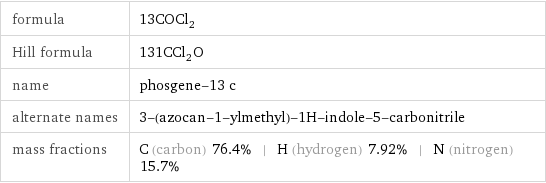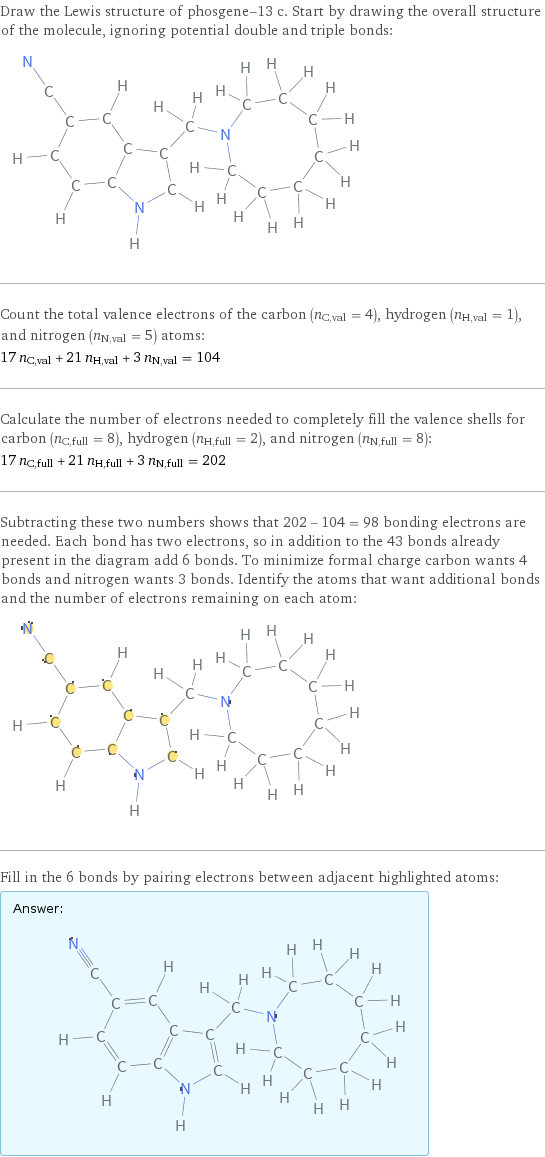Input interpretation

phosgene-13 c
Chemical names and formulas

formula | 13COCl_2 Hill formula | 131CCl_2O name | phosgene-13 c alternate names | 3-(azocan-1-ylmethyl)-1H-indole-5-carbonitrile mass fractions | C (carbon) 76.4% | H (hydrogen) 7.92% | N (nitrogen) 15.7%
Lewis structure

Draw the Lewis structure of phosgene-13 c. Start by drawing the overall structure of the molecule, ignoring potential double and triple bonds: Count the total valence electrons of the carbon (n_C, val = 4), hydrogen (n_H, val = 1), and nitrogen (n_N, val = 5) atoms: 17 n_C, val + 21 n_H, val + 3 n_N, val = 104 Calculate the number of electrons needed to completely fill the valence shells for carbon (n_C, full = 8), hydrogen (n_H, full = 2), and nitrogen (n_N, full = 8): 17 n_C, full + 21 n_H, full + 3 n_N, full = 202 Subtracting these two numbers shows that 202 - 104 = 98 bonding electrons are needed. Each bond has two electrons, so in addition to the 43 bonds already present in the diagram add 6 bonds. To minimize formal charge carbon wants 4 bonds and nitrogen wants 3 bonds. Identify the atoms that want additional bonds and the number of electrons remaining on each atom: Fill in the 6 bonds by pairing electrons between adjacent highlighted atoms: Answer: | |
Basic properties

molar mass | 267.38 g/mol
Units

Chemical identifiers

CAS number | 53120-07-3 SMILES identifier | C1CCCN(CCC1)CC2=CNC3=C2C=C(C=C3)C#N InChI identifier | InChI=1/C17H21N3/c18-11-14-6-7-17-16(10-14)15(12-19-17)13-20-8-4-2-1-3-5-9-20/h6-7, 10, 12, 19H, 1-5, 8-9, 13H2 MDL number | MFCD00084048